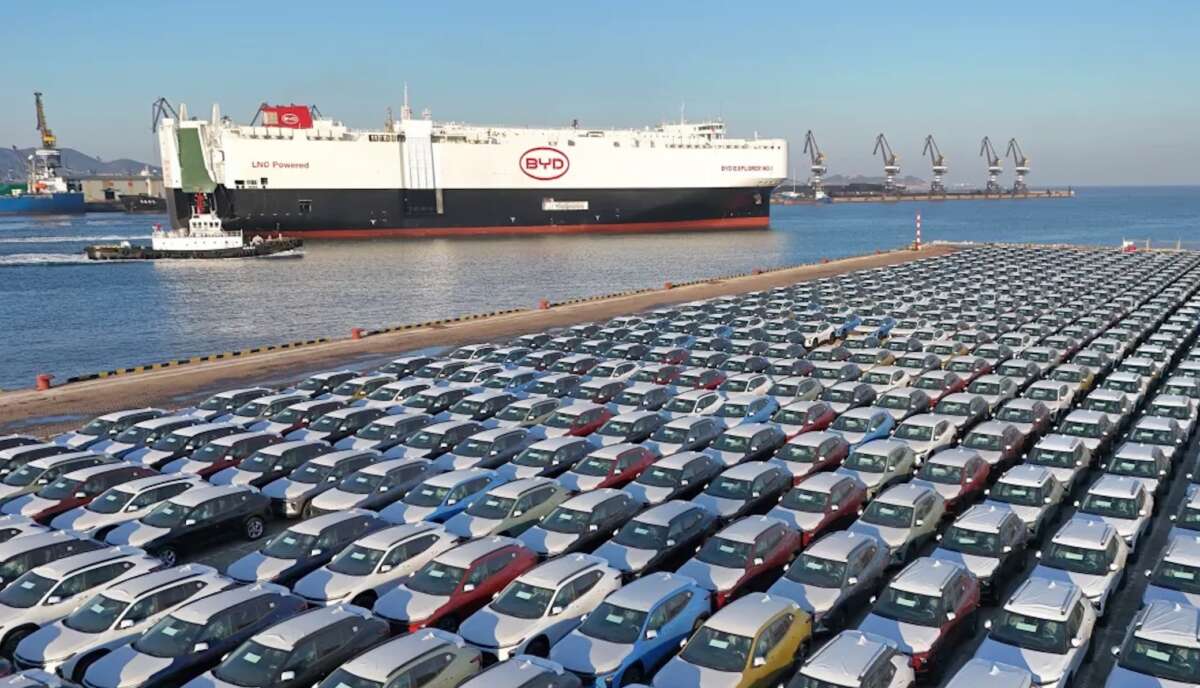
A brave move that few saw coming. We’re not talking about AUKUS or Europe, but an ASEAN country ‘standing up’ to our region’s superpower and biggest trade partner – China. Over the weekend, news surfaced from Indonesia saying that the country will soon impose import tariff of up to 200% on Chinese goods.
Should it happen, the move will immediately increase the cost of Chinese imports, and by some margin too. According to state news agency Antara, Indonesia’s trade minister Zulkifli Hasan said the planned tariff is to mitigate the effects of the trade war between China and the United States.
How so? He explained that the ongoing trade war between China and the West is causing an oversupply situation in the Asian giant – as their products face rejection by Western countries, it forces them to redirect exports to other markets like Indonesia. The minister didn’t use the word, but this practice is called dumping.
Acording to Investopedia, dumping is when a country (in this case, China) exports a product at a price that is lower in the foreign importing market (Indonesia) than the price in the exporter’s domestic market. Because dumping typically involves substantial export volumes of a product, it often endangers the financial viability of the product’s manufacturer or producer in the importing nation (again, Indonesia).
In other words, very few can compete with China’s scale and low cost, and when the giant dumps its products on us, the products of local manufacturers will be rendered uncompetitive by the influx. Consumers typically don’t mind cheaper goods, but as local businesses suffer, the effects will eventually be felt by the man on the street.
“The United States can impose a 200% tariff on imported ceramics or clothes; we can do it as well to ensure our MSMEs (micro, small and medium enterprises) and industries will survive and thrive,” Zulkifli said, adding that the tariff for China goods will range from 100 to 200% and the policy will take effect once the regulation is passed.
While the Antara piece did not specify the type of good that will be targeted, Nikkei Asia mentioned shoes, clothes, textiles, cosmetics, and ceramics. Cars and auto parts aren’t in the list, for now at least, but as the number of Chinese cars and brands grow (and cars are highly visible things), would the republic’s leaders put a brake on the growth via tariffs on CBU imports?
Interestingly, while researching this topic, I stumbled on a January 2024 article from China’s Belt and Road portal, which highlights the Middle Kingdom’s investments and inroads across the globe. Titled ‘RCEP boosts trade cooperation between China, Indonesia’, it cited the success of a company that manufactures coated ivory boards.
“With the certificates of origin under the Regional Comprehensive Economic Partnership (RCEP), our goods will enjoy a tariff reduction of nearly 20,000 yuan (RM12,977) when clearing customs in Indonesia,” said Liu Ning, director of the company’s export customs affairs. The batch of goods were valued at 430,000 yuan (RM278,994).
The RCEP entered into force on January 1, 2022, and it comprises 15 Asia Pacific countries including 10 ASEAN members and their five trading partners, namely China, Japan, South Korea, Australia and New Zealand.
RCEP took effect in Indonesia at the start of 2023, when the republic implemented immediate zero tariffs on 65.1% of products originating from China. The same gesture (67.9%) applies the other way, but China exports way more to Indonesia than the other way round. China has been Indonesia’s largest trading partner for 10 consecutive years now.
Based on the China-ASEAN Free Trade Agreement (CAFTA), Indonesia will add zero-tariff treatment to more than 700 Chinese products, including auto parts, motorcycles, televisions, clothing, shoes and plastic products, the Belt and Road article added.
So, we’re witnessing a swift turnaround then, perhaps due to pressure from local manufacturers feeling the pinch. While this piece of news is about China-Indonesia trade, the same benefits and complications apply to other ASEAN countries too, including Malaysia. There’s a price war in China’s auto market now, and when they need to look outward, the nearest and most obvious target is Southeast Asia.
Looking to sell your car? Sell it with Carro.




